Kingship Quotes
Quotes tagged as "kingship"
Showing 1-25 of 25
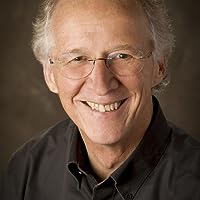
“. . . the only legitimate reason that kingship is not attractive to us is because in this age and this world the only kings available are finite and sinful. Listen to C. S. Lewis describe why he believes in democracy:
A great deal of democratic enthusiasm descends from the ideas of people like Rousseau, who believed in democracy because they thought mankind so wise and good that everyone deserved a share in the government. The danger of defending democracy on those grounds is that they’re not true. . . I find that they’re not true without looking further than myself. I don’t deserve a share in governing a hen-roost, much less a nation. . . . The real reason for democracy is . . . Mankind is so fallen that no man can be trusted with unchecked power over his fellows. Aristotle said that some people were only fit to be slaves. I do not contradict him. But I reject slavery because I see no men fit to be masters.1
If there could be a king who is not limited in his wisdom and power and goodness and love for his subjects, then monarchy would be the best of all governments. If such a ruler could ever rise in the world—with no weakness, no folly, no sin—then no wise and humble person would ever want democracy again.
The question is not whether God broke into the universe as a king. He did. The question is: What kind of king is he? What difference would his kingship make for you?”
―
A great deal of democratic enthusiasm descends from the ideas of people like Rousseau, who believed in democracy because they thought mankind so wise and good that everyone deserved a share in the government. The danger of defending democracy on those grounds is that they’re not true. . . I find that they’re not true without looking further than myself. I don’t deserve a share in governing a hen-roost, much less a nation. . . . The real reason for democracy is . . . Mankind is so fallen that no man can be trusted with unchecked power over his fellows. Aristotle said that some people were only fit to be slaves. I do not contradict him. But I reject slavery because I see no men fit to be masters.1
If there could be a king who is not limited in his wisdom and power and goodness and love for his subjects, then monarchy would be the best of all governments. If such a ruler could ever rise in the world—with no weakness, no folly, no sin—then no wise and humble person would ever want democracy again.
The question is not whether God broke into the universe as a king. He did. The question is: What kind of king is he? What difference would his kingship make for you?”
―
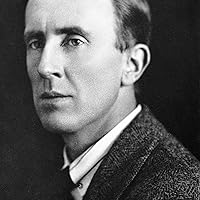
“Maedhros laughed saying: 'A king is he that can hold his own or else his title is vain. Thingol does but grant us lands where his power does not run. Indeed Doriath alone would be his realm this day but for the coming of the Noldor. Therefore in Doriath let him reign and be glad that he has the sons of Finwe for his neighbours not the Orcs of Morgoth that we found.”
― The Silmarillion
― The Silmarillion

“I tell you the truth, a man may not make himself king; only the blessing of him who holds the kingship can elevate a man to that high place. For sovereignty is a sacred trust that may not be bartered or sold; still less may it be stolen or taken by force.”
― The Paradise War
― The Paradise War

“A fire burned in his belly with Helen's words, her challenge laid bare. Are you a king worthy of great glory, or a pretender clamoring for attention at the edge of the world? One look to Menelaus was all the reminder Agamemnon needed of how much he detested that comparison.”
― The Princess of Sparta
― The Princess of Sparta

“You will be perpetually unhappy if you continue to refuse to walk in your calling.”
― Moonshine For The Soul: A Path to Strength, Wisdom, Growth, Health & Happiness
― Moonshine For The Soul: A Path to Strength, Wisdom, Growth, Health & Happiness

“When sovereignty first expands to become the general organizing principle of a society, it is by turning violence into kinship. The early, spectacular phase of mass killing in both China and Egypt, whatever else it may be doing, appears to be intended to lay the foundations of what Max Weber referred to as a ‘patrimonial system’: that is, one in which all the kings’ subjects are imagined as members of the royal household, at least to the degree that they are all working to care for the king. Turning erstwhile strangers into part of the royal household, or denying them their own ancestors, are thereby ultimately two sides of the same coin. Or to put things another way, a ritual designed to produce kinship becomes a method of producing kingship.”
― The Dawn of Everything: A New History of Humanity
― The Dawn of Everything: A New History of Humanity
“A society punishing a boy for stealing because he is otherwise unable to feed himself, would be hypocritical if not also blaming the instrument for not being tuned.”
―
―
“In his Kingly Office, The Prince of the Kings of the Earth: which Title sets out Christ not only to be God, equal with the Father, but as Mediator, King of his Kirk. He is called, Prince of the Kings of the Earth; not as if Kings, and all great Men, or others, were in the same Manner Subjects to him in the Relation that Believers are, (in which respect his Kingly Office extendeth no further, nor his Priestly and Prophetical Office) but though so he have not such a near Relation to them, nor they to him; yet he is King over them, to refrain them that they prejudge not his Kirk; and to judge them for any Wrongs or Prejudice they do to them, and to inflict temporal Judgments on them here, and eternal hereafter, when he shall be their Judge, and the Books shall be opened at the great Day.”
― A commentary on Revelation
― A commentary on Revelation
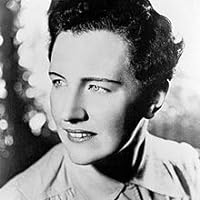
“Your people! Six boys and seven girls! You who are worthy to rule a kingdom."
"Not unless I am worthy to rule them. Few or many, it's all one, once one has put oneself in the god's hand.”
― The King Must Die
"Not unless I am worthy to rule them. Few or many, it's all one, once one has put oneself in the god's hand.”
― The King Must Die
“The sovereign is a ship, his people water.
Water keeps the ship afloat;
water can capsize it as well.
Subjects sustain their sovereign;
subjects also overthrow him.”
― The Tale of the Heike
Water keeps the ship afloat;
water can capsize it as well.
Subjects sustain their sovereign;
subjects also overthrow him.”
― The Tale of the Heike

“A king, in order to preserve his glory, will never allow himself to be outgiven or outdone by anyone.”
― Kingdom Fundamentals: What the Kingdom of God Means and What it Means for You | A Thorough and Biblical Exposition of the Kingdom of Heaven as Preached by Jesus
― Kingdom Fundamentals: What the Kingdom of God Means and What it Means for You | A Thorough and Biblical Exposition of the Kingdom of Heaven as Preached by Jesus

“It was glorious to acquire a throne by justice, yet more glorious to prefer justice before a throne; the same virtue which made the one appear worthy of regal power exalted the other to the disregard of it.”
― Plutarch's Lives: Volume I
― Plutarch's Lives: Volume I

“What is the meaning of drawing the sword from the stone? The meanings are several. It is the same message and symbol as Mithra coming from the cave or Jesus rising from the cave after death. The stone - cave represents the body - the apparent world - the nafs – the commanding self. Pulling the Sword from the Stone, in short means, pulling the light from "matter,” extracting essence from base. See it in an alchemical sense. In other words, it is the story of illumination. Thus, it is the moment of “Kingship.”
― The Sun at Midnight: The Revealed Mysteries of the Ahlul Bayt Sufis
― The Sun at Midnight: The Revealed Mysteries of the Ahlul Bayt Sufis

“The man who slowly walked away from them was a king in their society. A day had come when he had decided that he did not need any kingship other than the kind of wife everybody would loathe from the bottom of their hearts.”
― Maru
― Maru

“And Arthur, beginning to remember and trying not to, and suddenly more afraid than ever he had been in his life before, cried out "Father-Kay- why do you kneel to me? Get up! Oh sir, get up! I cannot bear that you should kneel to me, you who have been my father all these years."
And when Sir Ector would not, he dropped on to his knees also, to be on a level with the old man again.”
― The Sword and the Circle: King Arthur and the Knights of the Round Table
And when Sir Ector would not, he dropped on to his knees also, to be on a level with the old man again.”
― The Sword and the Circle: King Arthur and the Knights of the Round Table
“The reign of Alexander III followed a long period which effected a transformation of law, government and society, forging a coherent medieval kingdom out of a patchwork of territorial lordships. As the kingdom gradually emerged, so did an idea of what it meant to be Scottish. The governmental structures which evolved and the national identity which they enabled were to be crucial to the survival of Scotland through the wars of the fourteenth century and have remained a vital element in the deep-seated affinities which have maintained a distinctive Scottish society until the present day. My concluding contention is therefore that Alexander III's reign marks a high-point in Scottish medieval kingship.”
― Alexander III, 1249 - 1286: First Among Equals
― Alexander III, 1249 - 1286: First Among Equals
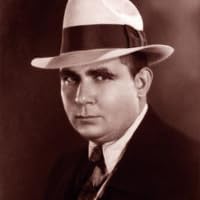
“When I was a fighting-man, the kettle-drums they beat;
The people scattered gold-dust before my horse's feet;
But now I am a great king, the people hound my track
With poison in my wine-cup, and daggers at my back.
—The Road of Kings”
―
The people scattered gold-dust before my horse's feet;
But now I am a great king, the people hound my track
With poison in my wine-cup, and daggers at my back.
—The Road of Kings”
―
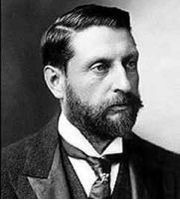
“Crowns that are bought with the promise of blood and held with cruelty are apt to be lost in blood, Userti.”
― Moon of Israel
― Moon of Israel

“[...] for a crown is a pitiless master, harsher than the staff of a pig-keeper; while a staff bears up, a crown weighs down, beyond the strength of any man to wear it lightly.”
― The High King
― The High King
All Quotes
|
My Quotes
|
Add A Quote
Browse By Tag
- Love Quotes 97.5k
- Life Quotes 76k
- Inspirational Quotes 73k
- Humor Quotes 44k
- Philosophy Quotes 29.5k
- Inspirational Quotes Quotes 27k
- God Quotes 26k
- Truth Quotes 23.5k
- Wisdom Quotes 23.5k
- Romance Quotes 23k
- Poetry Quotes 22k
- Death Quotes 20k
- Happiness Quotes 18.5k
- Life Lessons Quotes 18.5k
- Hope Quotes 18k
- Faith Quotes 18k
- Quotes Quotes 16.5k
- Inspiration Quotes 16.5k
- Spirituality Quotes 15k
- Religion Quotes 15k
- Motivational Quotes 15k
- Writing Quotes 15k
- Relationships Quotes 14.5k
- Life Quotes Quotes 14k
- Love Quotes Quotes 14k
- Success Quotes 13.5k
- Time Quotes 12.5k
- Motivation Quotes 12k
- Science Quotes 11.5k
- Motivational Quotes Quotes 11.5k




